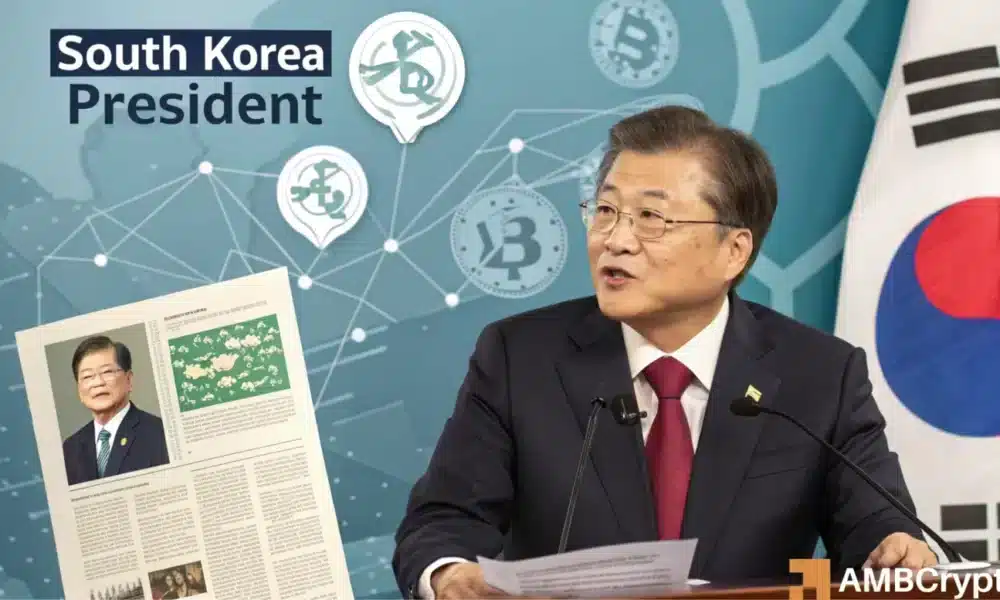- President Lee wants to breathe new life into the economy of South Korea with pro-crypto reforms and tax stimulus.
- US Pro-Crypto Stance under Trump influences the shift from South Korea to integration of digital assets.
The newly chosen President Lee Jae-Myung in South Korea did not waste time to tackle the economic concerns of the country and to call his first cabinet meeting only one day after he took office.
His priority?
Breathe new life into a slow economy and facilitate the financial tension of households, which were both cornerstones of his campaign.
This followed on the dramatic accusation of former President Yoon Suk Yeol, who was confronted with widespread recoil after an attempt to impose the state of siege.
While Lee is inauguration speech Did not have it directly to Crypto, his campaign track told another story.
In fact, he had made several daring promises about digital assets, indicating that policy shifts can be imminent under his leadership.
President Lee’s vision
That said, President Lee wants to accelerate the digital asset strategy of South Korea by building on the initiatives of the Digital Party Digital Party.
He is planning to promote the long -awaited Digital Asset Basic Act (DABA) and to achieve what his predecessor did not do.
Moreover, Lee Spot wants to legalize crypto ETFs, currently prohibited and enable the National Pension Service to invest in digital assets.
In fact, the Financial Services Commission started to implement a phased plan to institutional players on board, even before the elections.
Bipping
Moreover, President Lee Jae-Myung has committed himself to starting the wrestling economy of South Korea by announcing a rapid tax stimulus of more than 30 trillion (around $ 22 billion).
The government responded to considerably reduced growth projections, revised to only 0.8% in May, compared to 1.5% earlier this year, with this daring movement.
His candidate for Prime Minister, Kim Min-seok, strengthened the urgency and warned that the current global challenges could become harder than the Asian financial crisis of 1997.
Both Lee and his election rival, Kim Moon-Sooo, expressed strong two-part support for these initiatives during the campaign.
Kim Moon-Sooo said,
“Nowadays the economy goes down and stagnates, that’s why I believe it is much more difficult.”
What is behind this shift in sentiment?
Needless to say, the evolving attitude with regard to cryptocurrency in South Korea reflects a broader shift in politics and public sentiment.
This transformation is not only clear in campaign -rhetoric, but also in voters’ priorities, where digital assets are central.
For example, Sangmin SEO, a prominent technologist and head of the Kaia DLT Foundation, who supports the powerful Kaia Blockchain, recently noticed,
“This election, Korean politics, sees Crypto as a story to get the favors of voters and positions it as a different national growth motor alongside AI and semiconductors.”
What is more?
That said, Lee’s Push can also be influenced by crypto developments abroad.
With Donald Trump back in the American political spotlights and actively promoting crypto, the American attitude has changed considerably pro-digital assets.
This dramatic pivot probably served as a signal for world leaders, including President Lee, that embracing crypto can be a strategic step, not only for innovation, but also for geopolitical coordination in a rapidly digitizing economy.



